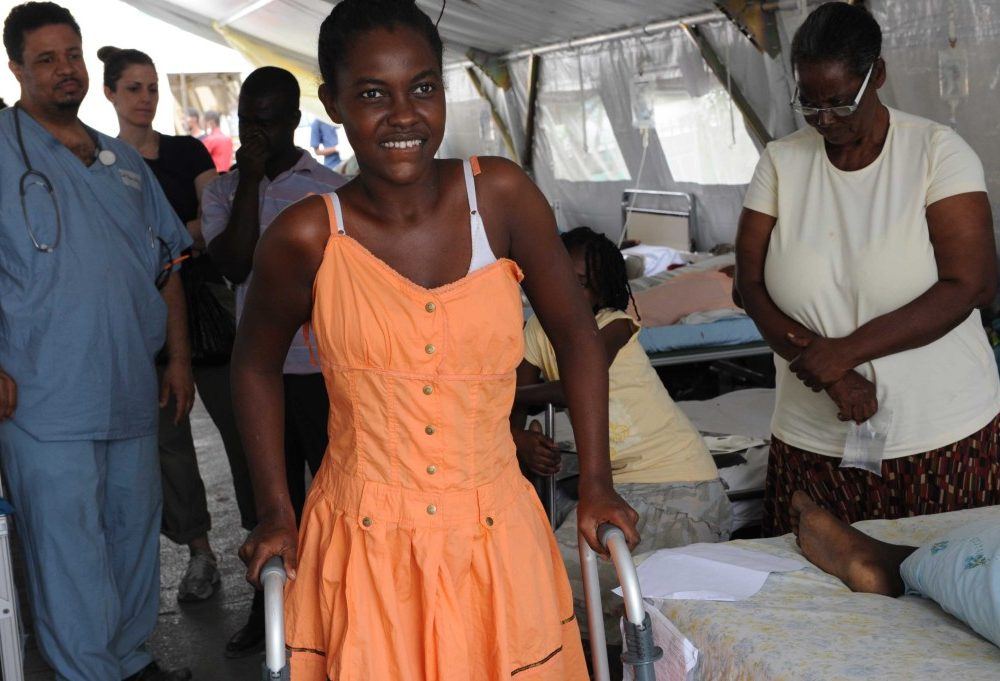
Partners in health: Partnering with poor communities to combat disease and poverty
Access to health care and psychosocial services should not be a privilege but a right for any person regardless of his/her ability to pay. Partners in Health (PIH) is committed to improving the health of the poor and the marginalized. Working in partnership with local governments, PIH is working in 12 countries delivering high-quality, comprehensive health care that saves lives while strengthening health systems, addressing the root causes of illness and advocating for global policy change. PIH has been successfully challenging skeptics who claim that high-quality healthcare is impossible to deliver in resource-poor areas.
Impact
For over 20 years, PIH has challenged assumptions of what is acceptable and pushed the boundaries of what is possible in global health by successfully tackling diseases and conditions others deemed too expensive and complicated to treat in poor communities. We give voice to marginalized people who demand their right to health care. Together with many partners, PIH is building a movement for health and social justice.
Beneficiaries
PIH provides healthcare for the inhabitants of impoverished communties in the countries that we work in: Haiti, Rwanda, Peru, Lesotho, Malawi, Russia, Guatemala, United States (Boston), Mexico, Dominican Republic, Kazakhstan, Burundi . Though we often focus our attention on specific campaigns such as maternal and pediatric health, we consistently treat the destitute sick, often inflicted with diseases and conditions that are common and lethal to the poor, even though they are relatively rare and routinely treatable for the privileged.
In total, PIH implements programs in twelve countries: Haiti, Peru, Mexico, Dominican Republic, Guatemala, Russia, Kazakhstan, Rwanda, Lesotho, Malawi, Burundi, and inner-city Boston, all supported by a headquarters staff of 167 and a worldwide staff of roughly 13,000, including 7,500 paid community health workers. This year, PIH will bring high-quality care to roughly 2.46 million people worldwide, with 30,000 patients currently receiving HIV or TB treatment.
Sustainability
The public health systems in the countries where we work are the most powerful means of providing rights-based health care to patients through public health systems operated by Ministries of Health (MOH). Therefore, rather than creating private, parallel service delivery systems that drain resources away from the public sector, we work closely with governments to strengthen public health systems and ensure that our efforts are part of a larger movement to provide publically-funded care. Known as Health System Strengthening, this aspect of PIH’s work means that we build local capacity and create long-term solutions to the health problems of the poor we serve. We intend for our programs to serve as a model for raising the standard of medical care in poor countries, for achieving sustainable improvements in health systems, and for lifting entire communities out of poverty.
Innovation
A vital public sector is the best way to bring health care to the poor. While nongovernmental organizations have a valuable role to play in developing new approaches to treating disease, successful models must be implemented and expanded through the public sector to assure universal and sustained access. Rather than establish parallel systems, PIH works to strengthen and complement existing public health infrastructure.
Scalability
For over 20 years, PIH has challenged assumptions of what is acceptable and pushed the boundaries of what is possible in global health by successfully tackling diseases and conditions others deemed too expensive and complicated to treat in poor communities. We give voice to marginalized people who demand their right to health care. Together with many partners, PIH is building a movement for health and social justice. By leveraging the benefits of modern medical science and the leadership, skills and experience of our patients, local governments and other partners, we strive for a world with equity in health care, and for communities with zero preventable – stupid – deaths.
Source of funding
The world is focused as never before on averting millions of preventable deaths among poor people living in the developing world. For the first time, substantial funding is available to treat infectious diseases in impoverished settings. Funding alone, though, won’t be enough. For this massive investment to make a real impact on the twin epidemics of poverty and disease, a comprehensive and community-based approach is key. We aim to maintain the makeup of 25% Corporate & Foundation revenue, 25% Government & Multilateral, and 50% Individual donations in the coming years, with steady growth to support our increasing needs.